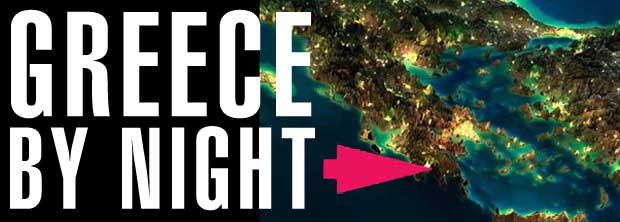Who is holding Greek Debt?
June 18, 2018
Greek Debt Talks: the Main Relief Measures Being Considered - MSN News
Feb 19, 2018
Greece’s welcome debt upgrade fails to end concerns over its long-term economic health - CNBC
"...European creditors have agreed to grant some relief to Greece by making its debt more sustainable. However, the final details of such debt restructuring are still being prepared. Nonetheless, they are expected to be implemented only after the program has come to an end, which is scheduled to take place in August, and only if market conditions require such measures to be triggered."
Update: 2015
Greek debt in 2015 - €316 billion
Source: UK Telegraph Newspaper
- ECB - 62%
- Eurozone - 14%
- IMF - 9%
- Greek Banks - 5
- Greek non-banks - 3%
- Other European Banks - 3%
- Non-European Banks - 2%
- Non-Greek non-banks - 2%
June 9, 2011
Who is holding Greek debt?
The web site Wallstreetcheatsheet.com has a list of who will be affected by a Greek default, basing their numbers on a March 2011 report from "Bank of International Settlements." I have regularly read that banks are trying to keep the true numbers of their loan exposure as secret as possible, so these numbers must be rather loose approximations:
- Japan: $500 million USD
- Spain: $600 million USD
- United States: $1.8 billion USD
- Italy: $2.6 billion USD
- United Kingdom: $3.2 billion USD
- France: $19.8 billion USD
- Germany: $26.3 billion USD
- "other" banks in eurozone: $15.7 billion USD
TOTAL: approx $70 billion USD
June 6, 2010
Where's the debt hiding?
New York Times tries to sort out who is holding the largest pile of debt that may never be repaid from the sovereign nations of europe: Greece, Portugal, etc. Jack Ewing's article more or less is saying no one knows for sure and the banks don't want to confess to how much bad ink is on their books.
“IT’S a $2.6 trillion mystery.
That’s the amount that foreign banks and other financial companies have lent to public and private institutions in Greece, Spain and Portugal, three countries so mired in economic troubles that analysts and investors assume that a significant portion of that mountain of debt may never be repaid.
The problem is, alas, that no one — not investors, not regulators, not even bankers themselves — knows exactly which banks are sitting on the biggest stockpiles of rotting loans within that pile. And doubt, as it always does during economic crises, has made Europe’s already vulnerable financial system occasionally appear to seize up. Early last month, in an indication of just how dangerous the situation had become, European banks — which appear to hold more than half of that $2.6 trillion in debt — nearly stopped lending money to one another.
...“The marketplace knows very little about where the real risks are parked,” says Nicolas Véron, an economist at Bruegel, a research organization in Brussels. “That is exactly the problem. As long as there is no semblance of clarity, trust will not return to the banking system.”
The big problem here is one of information. Without actual true numbers to work with, banks that may be perfectly healthy will be mistaken or thrown in with banks that are hanging by a thread. An absence of true information will allow rumour and misinformation to have more weight with investors and other financial institutions.
"...Analysts at the Royal Bank of Scotland estimate that of the 2.2 trillion euros that European banks and other institutions outside Greece, Spain and Portugal may have lent to those countries, about 567 billion euros is government debt, about 534 billion euros are loans to nonbanking companies in the private sector, and about 1 trillion euros are loans to other banks. While the crisis originated in Greece, much more was borrowed by Spain and its private sector — 1.5 trillion euros, compared with Greece’s 338 billion."
A natural consequence of this hide-and-seek situation is the cost of debt insurance has skyrocketed in europe (Wall Street Journal):
" ...the derivatives market is growing concerned regardless as European debt jitters persist. It now costs $290,000 a year to insure $10 million of Italian government bonds against default for five years, up from $237,000 on Thursday, according to data provider Markit.
The extra interest Italy has to pay investors to buy its bonds instead of Germany's also has jumped. That is painful because Italy tends to visit the market more often to raise cash, having the world's third-biggest bond market, after the U.S. and Japan."


Greece's Golden Visa program
Advertisement: I am an Amazon affiliate



